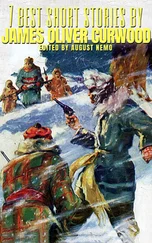The seven men and women gathered in the room were among the most brilliant and powerful people in the country, including representatives from the fields of finance, the military, technology, and energy. They were also people who understood and supported their organization’s unique mission. The group chose its members very carefully.
This meeting, though, was an anomaly. There was an unfamiliar tension in the room, a mood of anger, resentment, and disappointment struggling to find a proper outlet.
“So we have had a setback. Something impossible to predict,” Perry Gardner said, in another attempt at summary. “The mission aborted hours before it was to become operational.”
“Priest aborted the mission,” said a former Joint Chiefs of Staff member and secretary of defense, interrupting him. “But we don’t know why.”
“No.” The chairman sighed. “A great deal of stress, presumably. Maybe guilt. We don’t know all of the reasons yet. It might be a while before we get a complete picture. As I say, we know that he took his own life and sabotaged some elements of the plan. I take full responsibility for that. But the plan will go forward,” Gardner said, looking quickly to his left. “My estimate—and I will prepare a more thorough analysis, of course—is that we can re-activate this again within three to four weeks.”
“But what about the status of the viral properties?” said a tall white-haired man, a Nobel Prize-winning biologist. “Isn’t there an enormous risk factor there?”
“No. As I said, we have built-in safeguards, which have rendered the mechanism inoperable. I will be traveling there today for a more complete analysis.”
One man in the room knew more than the others. Perry Gardner could feel it, and he avoided that man’s eyes. For nearly a year, the people in this room had been infected with Gardner’s idea, with a humanitarian mission that could have turned the wheel of history. Now, each in his or her own way, they were beginning to reject it.
“Self-inflicted gunshot wound was also how Thomas Trent died,” the man to his left said. “And it’s one of the signature methods used by the Hassan Network.”
Gardner did not respond or look at the other man, hoping that his remark would pass without comment. “Again, I want to stress that this is a setback. A battle, not a war. We still control the resources, technology, and opportunity. The objective of creating a New Paradigm, a high-tech, productive model for the so-called Third World, is still very much alive.”
“I don’t know how this could have happened, based on everything Mr. Gardner has told us,” said Richard Franklin, the man to Gardner’s left. “I, too, want to be sure that this setback hasn’t inadvertently created an unspeakable crisis. I want to make certain that the Hassan Network hasn’t gotten hold of any of this and is planning to use it as a terrorist weapon. That to me is very troubling.”
Again, no one commented. But the others were skeptical now; Gardner could sense it. There had been misgivings all along about his involvement with the Hassan Network. And it was a concern, but one that he couldn’t afford to admit. Not in this company.
Within ten minutes, the frustration and anger in the room had found a form. They had agreed to continue moving forward with the project but to strip Perry Gardner of his chairmanship. A former secretary of state was named the new chairman.
Gardner sat stone-faced, saying nothing.
“There’s another issue,” said one of the two women, a onetime chairman of the Federal Reserve. “The president of Mancala has been a silent partner on this project. He has just sent us an accounting, though, for one point nine billion dollars.”
“ What ?” said Richard Franklin. “How could that be?”
“The third payment was never made, he claims.”
“That’s not possible,” Gardner said, calmly. “The money went to Priest four days ago.”
“What sort of transaction was it?” asked one of the world’s most successful investors.
Gardner almost choked as he said the words: “Bearer bonds.”
“So two billion dollars in investor money is missing? And it was paid in bearer bonds?”
“I’m certain it will be accounted for,” the man known as the Administrator said.
Gardner looked to his left, making eye contact for the first time with Richard Franklin, letting him know what he knew: that the real betrayal had involved men who were right here in this room.
ALEC TOMKIN DISEMBARKED AT Dulles Airport and rode the subway to Rosslyn, Virginia, carrying in his bag a laptop, a few clothes, and the experimental surveillance device that Okoro had given him before he’d left Africa.
Nine blocks away he came to a familiar strip shopping center, in a neighborhood where he had once lived. For the past three years, Charles Mallory had rented a locker here, where he stored two changes of clothes and a 9mm Glock handgun. It was the gun he retrieved today, not the clothes.
He took a taxi the rest of the way, across Key Bridge into the district, then east on M Street to the riverfront and south to the Watergate Complex. Although Richard Franklin and his wife lived in an old stone house in the Great Falls area of Virginia, they had also owned a two-bedroom apartment in the Watergate for nearly twenty years. It was where Franklin often stayed during the week.
On the overseas flight, Charlie had thought about the note from his father again, struck by how much of it made sense now. Nearly everything had been explained, with one notable exception. There was one question his father had posed that he hadn’t been able to answer. If Richard Franklin wanted to shut down his father’s inquiry into the Isaak Priest Project, why then had he hired Charles Mallory to stop Priest? There was really only one explanation—one underlying motive—and it was a disturbing one.
HE WALKED THE grounds of the Watergate Complex for more than an hour, browsing in stores, figuring a way in. Franklin lived in the South building, where Condoleezza Rice used to live. If he could get into the garage, he knew, he could get to Franklin’s apartment. Finally, he saw his opportunity. A resident driving out of the garage stopped at the gate house and became engaged in an animated conversation with the guard. Charlie used the distraction to run down the entrance ramp on the other side of the gate house, hurrying among the cars toward a red rectangular sign with a zigzag diagram of steps.
Franklin’s was a fifth-floor unit, Charlie knew. He couldn’t remember the number, but Franklin had made it easier. His was one of only three apartments on the floor without a name plate. Mallory was pretty sure he remembered which it was. He pounded on the door several times. Stepped out of the way of the peephole.
“Yes?”
“Maintenance,” he said in a gruff voice.
“What is it? I didn’t call anyone.”
He knocked again, more urgently. Said “Maintenance.” Moments later, it opened, the chain still attached. Richard Franklin, dressed in jeans and an oversized pink polo shirt, stared at him through the crack.
“Hi, Richard.”
“Charlie. What are you doing here?”
“Wanted to talk with you,” he said. “Didn’t have time to go through the usual channels. Can you let me in?”
The apartment had been renovated since he’d been there but still looked like something from the 1960s, which it was. Curved walls, glass block dividers. The sliding glass doors to the terrace were open, the wraparound porch providing a view of the Potomac, the Kennedy Center, and Georgetown. “Aren’t you worried about surveillance?”
“Not as much as I used to be. Have a seat,” Charlie said.
Читать дальше












